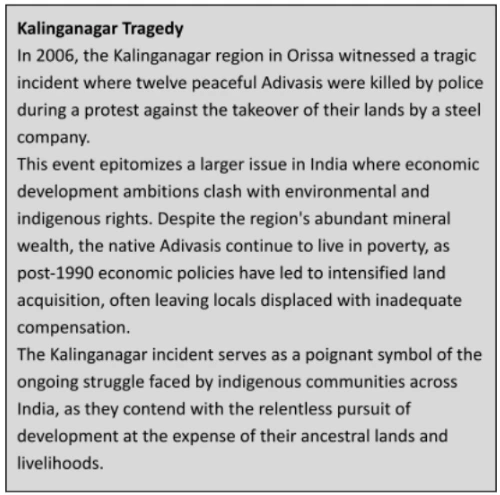The term “Adivasi,” meaning “original inhabitants“, emerged in the 1930s and signifies political consciousness and the demand for rights. Like the Scheduled Castes, the Scheduled Tribes are social groups recognised by the Indian Constitution as specially marked by poverty, powerlessness, and social stigma.

The jana or tribes, were believed to be ‘people of the forest’ whose distinctive habitat in the hills and forest areas shaped their economic, social and political attributes.
Glossary
|
|---|
<div class="new-fform">
</div>